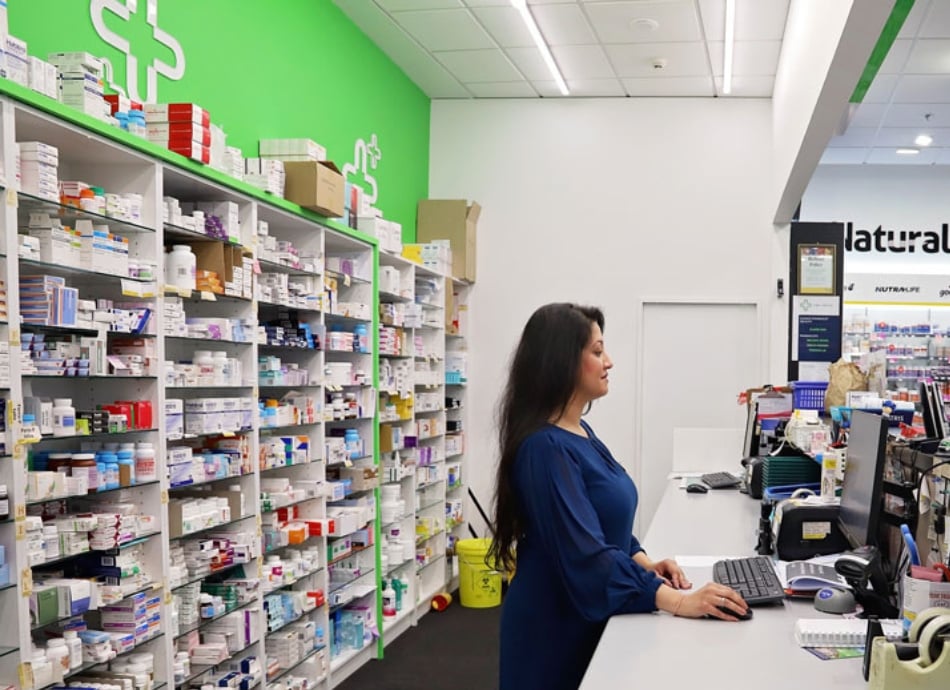Pre-exposure Prophylaxis (PrEP)
Pre-exposure Prophylaxis (PrEP) Rongoa ī mua te huranga
Key points about Pre-exposure Prophylaxis (PrEP)
- PrEP is an HIV prevention method for people who do not have HIV, but are at risk.
- HIV is a virus that causes HIV infection, which damages the immune system and weakens your ability to fight infections and disease. The most advanced stage of HIV infection is AIDS.
- PrEP is 2 medicines, tenofovir and emtricitabine, in a single tablet. There are two ways of taking it.
- Read about PrEP and how to take it.

PrEP (pre-exposure prophylaxis) can prevent HIV. It is for people who are HIV negative, and at risk of getting HIV. PrEP is 2 medicines, tenofovir and emtricitabine, in a single tablet. There are two ways of taking it.
Daily PrEP
Anyone can use this but it is ideal if you have frequent sex, or if you have infrequent sex but prefer not to plan or delay sexual activity.
Daily PrEP involves taking 1 tablet every day, at about the same time each day. Have a regular routine for taking your tablet, eg, in the morning after you brush your teeth. It is important to take your PrEP tablet every day.
PrEP 2-1-1
This is also known as event-driven PrEP or on-demand PrEP. It involves planning and using reminders every time you have sex, with specific dosing before and after sex. It is extremely important that you don't miss doses. This option is currently only shown to be effective for cisgender gay and bisexual men and may be an option if you have infrequent sex (less than twice a week) and if it is easy for you to plan or delay sexual activity.
Learn more about the ways of taking PrEP(external link).
Some groups of people are at higher risk of getting HIV. For example, men who have sex with men, transgender people who have sex with men, and people who have a partner who is living with HIV (who is not taking HIV medication or has a detectable viral load).
To find out if PrEP is right for you, talk to your doctor. Find a PrEP friendly provider.(external link) You can also find out more about PrEP on the Burnett Foundation Aotearoa(external link) website.
It is still important to use a condom while you are taking PrEP. PrEP protects you against HIV, but does not protect you against other sexually transmitted infections like syphilis or gonorrhoea. Condoms are highly effective at reducing the chance of most sexually-transmitted infections being passed from one person to another. Condoms are fully funded on prescription.
PrEP is available on prescription. In Aotearoa New Zealand it is a funded medicine as long as you meet certain criteria. This means that anyone eligible for funded healthcare may be able to get a 3 month supply of PrEP for up to $5. You can check to see if you are eligible.(external link)
However, not everyone in Aotearoa New Zealand is eligible for funded healthcare – and not everyone who is eligible for funded healthcare will be eligible for PrEP. Read more about your options if you are not eligible for funded PrEP.(external link)
Before starting PrEP, you will need to get yourself tested to make sure that you are HIV negative. If you use PrEP when you are already living with HIV, it can cause the virus to develop resistance and reduce your options for HIV treatment.
Once you're on PrEP, you will need to be tested for HIV every 3 months. This is to make sure that PrEP is still protecting you. Your doctor will also do regular blood tests to check that your kidneys are working well and to check for hepatitis B, STIs and pregnancy (if relevant).
Like all medicines, PrEP can cause side effects, although not everyone gets them. Often side effects improve as your body gets used to the new medicine. Common side effects include nausea (feeling sick), vomiting (being sick), tummy pain, flatulence (gas and wind), diarrhoea (runny poo), and headache. These are most common in the first month of treatment and will ease within the first 3 months of treatment.
Talk to your doctor if these things happen to you while you are taking PrEP because some of these symptoms are similar to HIV.
Read more about medicines and side effects and reporting a reaction you think might be a side effect.
PrEP can interact with some medications, herbal supplements and rongoā Māori, so check with your doctor or pharmacist before starting PrEP and before starting any new products. This includes anti-inflammatories that you can buy at your supermarket or pharmacy. Anti-inflammatories include ibuprofen (Nurofen) or diclofenac (Voltaren).
PrEP 2-1-1(external link) Burnett Foundation Aotearoa
PrEP for HIV prevention(external link) Ending HIV, Australia
Brochures
PrEP(external link) Burnett Foundation Aotearoa
References
- PrEP and PEP guidelines for Aotearoa New Zealand(external link) NZSHS and Burnett Foundation Aotearoa, 2023
- Prevent HIV by prescribing PrEP(external link) The Australasian Society of HIV, Viral Hepatitis and Sexual Health Medicine (ASHM), NZ, 2021
- HIV Drug Interactions(external link) University of Liverpool, UK
Workforce development(external link) Burnett Foundation Aotearoa has online modules and resources for clinicians
PrEP and PEP guidelines for Aotearoa New Zealand(external link) NZSHS and Burnett Foundation Aotearoa, 2024
Prescribing HIV pre-exposure prohylaxis (PrEP) in Aotearoa New Zealand(external link) NZSHS and Burnett Foundation, 2023
B-QuiCK - HIV pre-exposure prophylaxis (PrEP)(external link) BPAC, NZ, 2024
HIV pre- and post-exposure prophylaxis – a guide for primary care(external link) BPAC, NZ, 2024
Brochures

Medicines and side effects
Healthify He Puna Waiora, NZ, 2024

Health Quality and Safety Commission, NZ, 2019 English, te reo Māori
Credits: Sandra Ponen, Pharmacist, Healthify He Puna Waiora. Healthify is brought to you by Health Navigator Charitable Trust.
Reviewed by: Maya Patel, MPharm PGDipClinPharm, Auckland
Last reviewed:
Page last updated:





